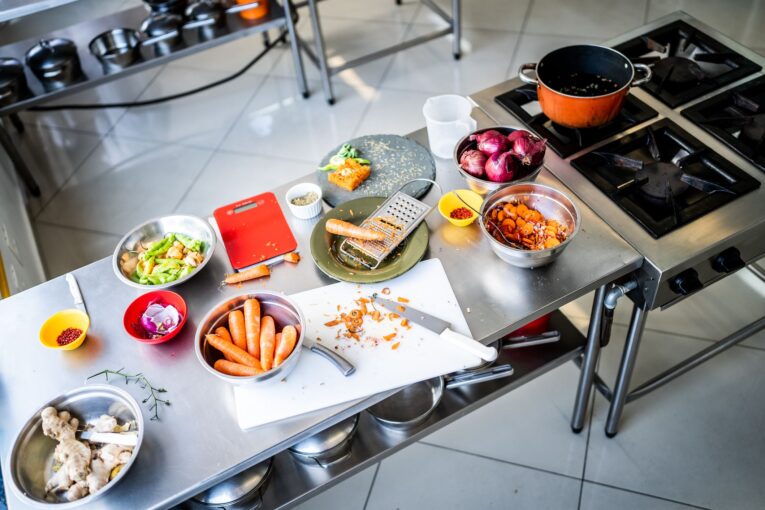
Your kitchen is the heart of your home, where delicious meals are created and shared with loved ones.
Even well-meaning cooks can make mistakes that turn a good meal into a health risk. It’s not just restaurant food that can make you sick — home-cooked meals can too.
To keep your food safe, here are seven common kitchen mistakes to avoid.
- Not washing your hands properly
We all know we should wash our hands. But let’s be honest — how many of us actually do it thoroughly every single time?
Not washing your hands properly after handling raw meat, poultry, or fish can spread harmful bacteria all over your kitchen. The key is to wash with soap and warm water for at least 20 seconds, especially after touching raw ingredients.
Also, be mindful of what you touch afterward, like taps, oven handles, or fridge doors, because you don’t want to spread germs across the kitchen.
- Defrosting meat and poultry on the counter
Defrosting food on the kitchen counter might seem convenient, but it can lead to bacteria growth, especially in warm weather and make you sick. Always defrost meat, poultry, and fish in the fridge to keep them safe.
A handy tip: place them on the bottom shelf to prevent raw juices from dripping onto other foods.
- Not replacing dish sponges and cloths
The sponge by your sink might seem harmless, but it can collect bacteria from moisture and food particles.
Make it a habit to replace or disinfect your sponges weekly, and regularly wash dish cloths in hot water to keep them clean.
- Reusing kitchen utensils without washing
If you’re using the same tongs, spatulas, or wooden spoons to handle both raw and cooked foods without washing them in between, you’re setting yourself up for cross-contamination.
Always use separate utensils or wash them thoroughly before moving from raw to cooked food to avoid spreading bacteria from raw meat to ready-to-eat dishes.
- Overcrowding your fridge
A packed fridge might seem like a good idea, but overcrowding can lead to poor air circulation, uneven cooling, and even spoiled food.
It’s important to leave some space between items in your fridge so air can circulate properly. This keeps your food fresh and safe for longer periods of time.
- Not washing fruits and vegetables with inedible skins
Even if you’re peeling an orange or banana, it’s important to rinse it first. Bacteria on the skin can transfer to the inside when you cut through.
A quick rinse under cool water helps prevent this.
- Leaving cooked food out for too long
It’s easy to get distracted after cooking a big meal, but leaving food out for too long can lead to bacteria growth. Try to refrigerate leftovers within two hours of cooking, or one hour if it’s a particularly hot day.
Storing food promptly in the fridge helps keep it safe to eat later without falling sick.
By avoiding these common kitchen mistakes, you’ll not only keep your kitchen cleaner, but also help ensure the meals you prepare are safe for everyone to enjoy. A little extra attention to hygiene and food handling can go a long way in keeping your household healthy.




